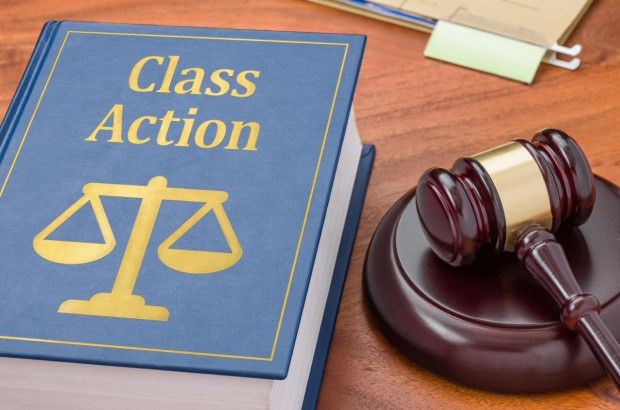What Are Class Action Lawsuits And How To File One


In reality, filing a lawsuit can be costly, complicated, and time-consuming. But, all these only apply to situations wherein someone else's negligent behavior caused you injuries and other substantial damages that have a significant impact on your life. When the cost of your damages isn't as sizeable as you think, initiating an individual lawsuit might not be a great idea. This is where a class action lawsuit enters the picture.
If it's your first time hearing this legal concept, keep reading this article to learn what it is and how you can file one.
In the purview of personal injury law, class action lawsuits are legal actions usually filed by a group of people who have sustained similar injuries as a result of the defendant's careless actions. In other words, a class action lawsuit allows hundreds of individuals to come together and file a case when it's not financially practical to bring an action individually.
Moreover, class action lawsuits are commonly filed against big companies and organizations, such as financial institutions, manufacturers, employers, and even government entities, based on different allegations. These can include discrimination, false advertising, defective products, and unlawful employment practices.
On the other hand, the people involved in a class action lawsuit may include the following:
Lead Plaintiff - This is the person who files the lawsuit in court. They'll be named in the complaint, which is the legal document initiating the start of the lawsuit.
Class Members - Although there's a lead plaintiff who files the complaint, there are also hundreds to thousands of people who are included in the lawsuit. They're known as class members. Since their rights are affected by the lawsuit, they'll receive a reasonable portion of the settlement or judgment.
Defendant - This is the person or company who allegedly caused the plaintiff and the class members' injuries, which is why they're being sued.
As you can see, class action lawsuits let injured individuals have a voice against defendants who wronged them, making these legal actions more influential than single lawsuits. But, unless you're a legal expert, you need the assistance of a lawyer to help you navigate the process. To have an in-depth understanding of what this legal matter is all about, check out sadakafirm.com/class-action-lawsuits for more valuable information.
Now that you know and understand what class action lawsuits are, it's time to get familiar with how you can get started with filing one. Just like other legal actions, class action lawsuits come in a step-by-step procedure. These steps include:
1. Figuring Out Whether A Class Action Lawsuit Can Be Filed
Before anything else, you should first determine whether you and the members are eligible to file a class action lawsuit in court. To do this, you must hire a reliable class action lawyer to assess the situation and figure out the necessity of a legal action.
Below are the things your lawyer should find out to help them determine whether you should file a class action lawsuit:
Number of other people who might have been injured the same way you were
Whether a lawsuit containing the same allegations had been previously filed
Whether the plaintiff and the class members still have time to file the legal action within the required statute of limitations
Whether the defendant can use the defense of bankruptcy to avoid liability
Whether the class members should file individual or separate lawsuits against the defendant.
2. Drafting A Complaint
Once the lawyer determines the need to file a class action lawsuit, they'll draft a complaint. It's the official legal document filed in court that outlines and describes the facts of the case, as well as the damages prayed for by the plaintiff and the class members.
Also, the complaint should describe the class of members covered by the class action lawsuit. For example, the class can be classified as nationwide or statewide, depending on the location of the individuals who initiated the lawsuit.
3. Undergoing Class Certification
Even if your lawyer files the complaint in court, it doesn't automatically become a class action unless the presiding judge gives it the class action status. This process is called class certification.
To ensure your case will be labeled as a class action, below are the requirements that you need to prove from the beginning:
The filing of individual lawsuits appears to be impractical than initiating a class action.
There are legal matters that are commonly applied to the class.
The class members have common questions of fact and law.
The claims or defenses of the class are the same as one another.
The potential class should be adequately represented by lawyers who have experience in handling complex cases.
Once you prove these circumstances, the judge will give the case its class action status and start the litigation process.
Bottom Line
Indeed, class action lawsuits can be an excellent legal remedy for several people who have been commonly injured by a certain defendant. This is especially true in cases wherein you want to recover compensation against the at-fault party, but filing a separate legal action isn't practical.
Therefore, if you know many of you have been injured by a defective product or your employer's unfair employment practices, consider filing a class action lawsuit. Keep in mind the information mentioned above so you'll have an idea on what to expect throughout the process.
© 2023 Lawyer Herald All rights reserved. Do not reproduce without permission.
* This is a contributed article and this content does not necessarily represent the views of lawyerherald.com
Get the Most Popular Lawyerherald Stories in a Weekly Newsletter